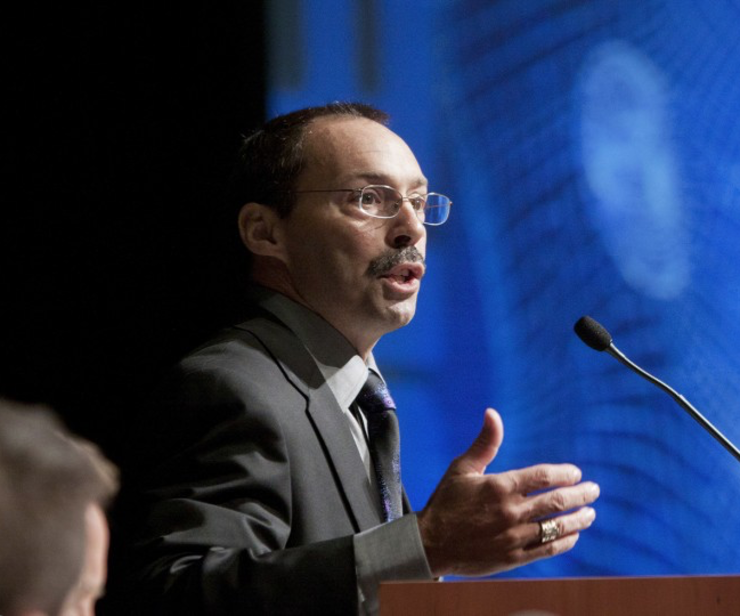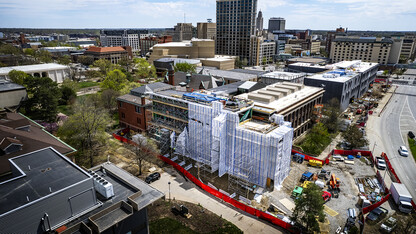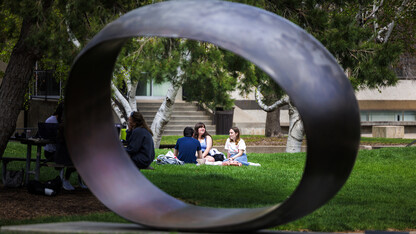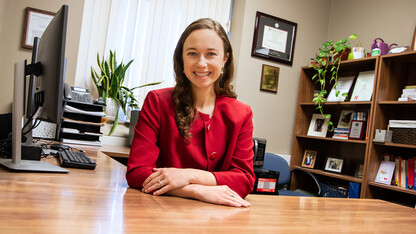· 6 min read
Prem Paul steps down as vice chancellor
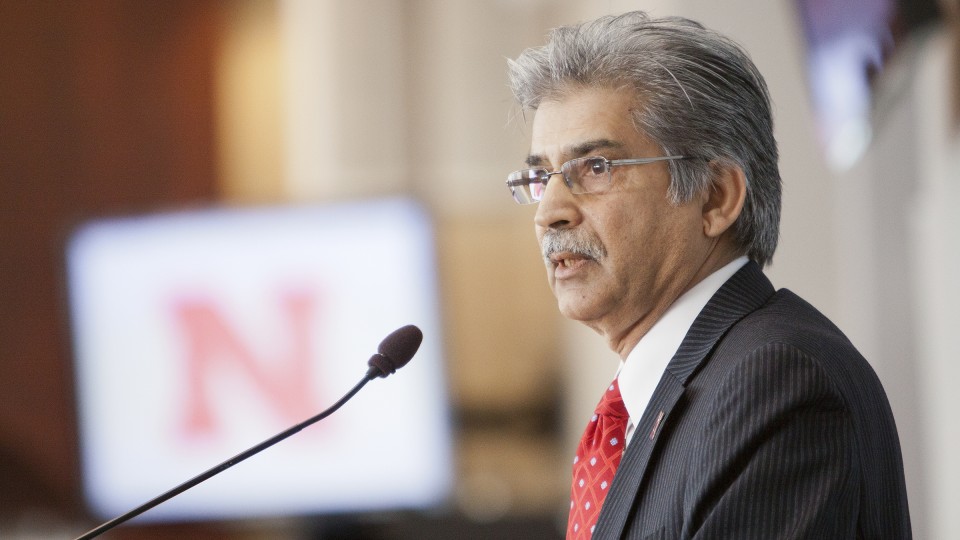
After 15 years of enthusiastic leadership at the University of Nebraska-Lincoln in which he helped pilot the university to unprecedented levels of research growth and progress, Prem Paul has announced he will step down as vice chancellor for research and economic development.
Paul, who came to the university on July 1, 2001, wrote in an Aug. 29 note to faculty and staff that he would end his tenure as one of the university’s top administrators immediately.
“Serving this university … has been the highlight of my career,” Paul wrote. “I am indebted to the many faculty members and staff who have made our research growth possible. It has been an honor to witness your achievements and to watch you dream bigger. We are a strong research university on an impressive trajectory and I know that our best days lie ahead.”
Chancellor Ronnie Green, in a separate note to campus, wrote that Paul would return to the faculty as distinguished professor of veterinary medicine and biomedical sciences. Paul cited health reasons for his decision.
Green said Steve Goddard would become interim vice chancellor for research and economic development, pending approval by the Board of Regents. Yet, the chancellor said it would be difficult to “find another person in the 147-year history of the University of Nebraska who has achieved the level of impact of Prem Paul.”
Since Paul came to the university to lead the university’s research efforts, Nebraska has become “a much bigger, bolder, and more impactful institution in our contributions of research, scholarship, and creative activity,” Green wrote.
“Prem’s vision, coupled with his relentless energy and enthusiasm to think big, has been nothing short of remarkable in how it has transformed us as a research-intensive university,” the chancellor wrote.
Read Chancellor Green’s full comments on Prem Paul
Under Paul’s leadership, Nebraska was one of the fastest-growing research universities in the nation from 2001 to 2009. A national downturn in federal research funding posed challenges, but the university continued making steady progress toward its growth goals.
Paul’s accomplishments include establishing a culture of excellence as a research university, helping faculty dream big and providing the infrastructure to make those dreams come true, and recognizing and celebrating the university’s research successes. He recognized the value of interdisciplinary research and established several such centers, including the Nebraska Center for Energy Sciences Research, the Center for Brain, Biology and Behavior, and the Social Sciences Behavioral Research Consortium.
Timeline: Highlights of Prem Paul’s tenure at Nebraska
The university surged past $100 million in research funding by 2006, the first time external funding had reached that milestone. In 2015, sponsored research reached a record high in the fiscal year ending June 30, increasing more than 12 percent to $146.9 million. In July, the university was named to the Nature Index’s top “rising stars” in research for 2016.
In early 2008, Paul’s title changed to reflect new responsibilities in economic development, a growing area of emphasis for the university. He also was dean of graduate studies from 2001 to early 2008.
Former Chancellor Harvey Perlman, who retired in June, said Paul’s passion for his work was contagious among faculty – and administrators, too – as he worked to help others realize their ambitions.
“He infused the entire university administration with his commitment to excellence, to high ambitions, and to significant accomplishments,” Perlman said. “While his portfolio was research and economic development, his influence was much broader. And while he was fond of saying ‘show me the money,’ he worked tirelessly to promote the humanities and other areas where the payoffs were in different currency.
“By this note I salute Prem, my good friend, for his tenure and his service to the university and to wish him and (his wife) Missi and his family the very best.”
Before coming to Nebraska, Paul was a faculty member at Iowa State University, where he was associate vice provost for research, associate dean for research and graduate studies in the College of Veterinary Medicine and assistant director of the Iowa Agricultural Experiment Station. Earlier he was the veterinary medical officer at the USDA’s National Animal Disease Center in Ames.
He has served on review panels for the National Institutes of Health, the U.S. Department of Agriculture and the National Science Foundation and was a member of the U.S. Food and Drug Administration’s xenotransplantation advisory subcommittee. He chaired the Coalition of EPSCoR/IDeA States and is a member of the Council on Research Policy and Graduate Education. He was a member of the National Academies Committee on Policy Implications of International Graduate Students and Postdoctoral Scholars in the United States and past president of the Council of the Conference of Research Workers in Animal Diseases.
He is a member of the American Veterinary Medical Association, American Association for the Advancement of Science, American College of Veterinary Microbiologists, American Society for Virology, Conference of Research Workers in Animal Diseases and the American Association of Swine Veterinarians.
Goddard, who joined the university in 1998, has been associate vice chancellor for research since 2014 and previously was interim dean of the College of Arts and Sciences and chair of the Department of Computer Science and Engineering. Goddard has served on the Chancellor’s Commission on the Status of Women, the ADVANCE-Nebraska Faculty Committee, the Faculty Senate’s Intercollegiate Athletics Committee and led a campus-wide task force studying the potential role and impact of MOOCs, or massive online open courses.
Before joining the university, Goddard worked in the computer industry for 13 years, including nine as president of his own company. He earned a bachelor’s degree in computer science and mathematics from the University of Minnesota in 1985 and earned his master’s and doctoral degrees in computer science from the University of North Carolina.
“Please join me in welcoming Steve to this critically important leadership role and in thanking Prem for his immeasurable impact on the University of Nebraska,” Green wrote. “We wish them both the very best in the future.”
